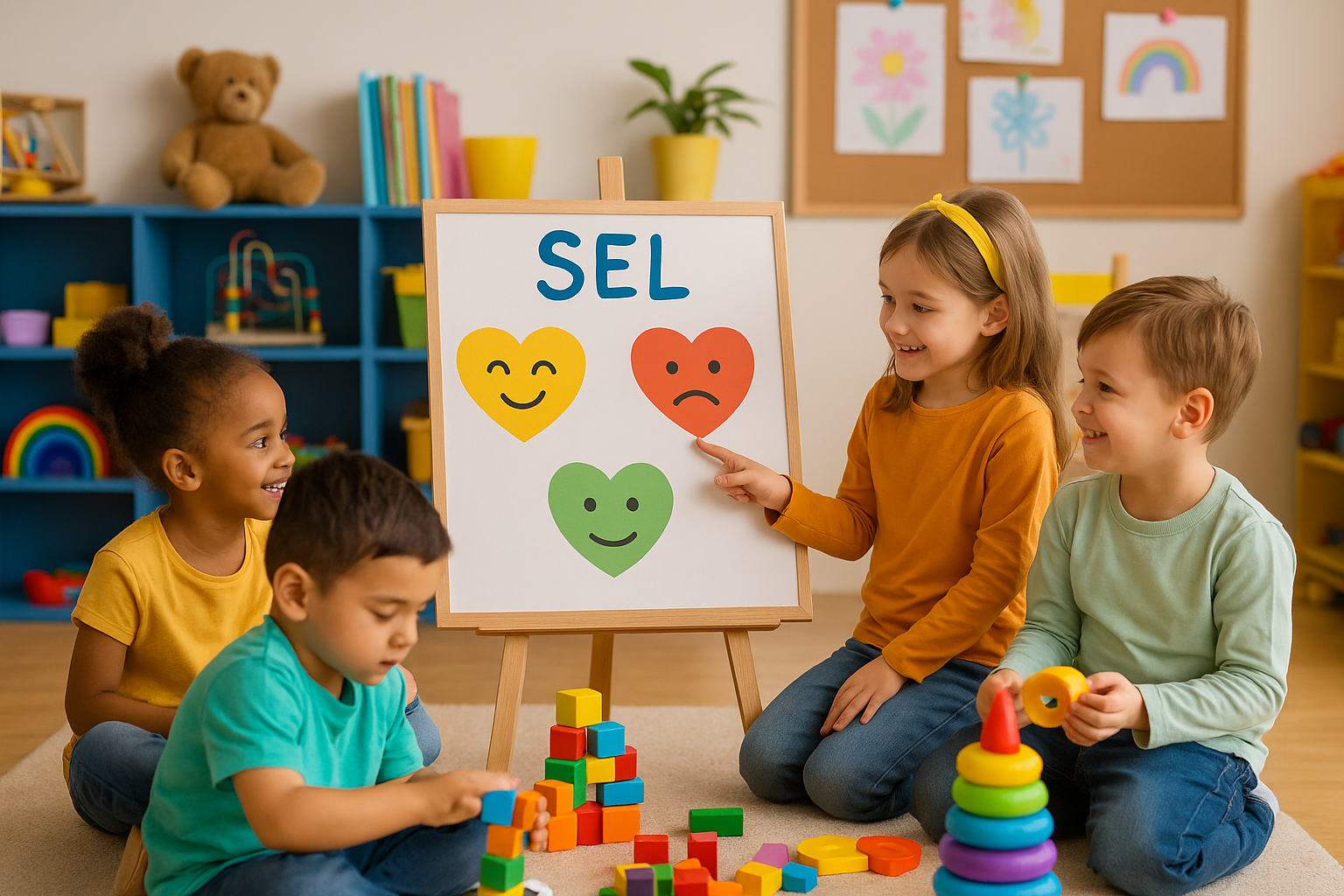Nurturing Hearts and Minds: The Power of Social Emotional Learning in Early Childhood
(In celebration of World Mental Health Day – October 10th)
 The early years of a child's life are not just about learning letters and numbers—they are about learning to understand emotions, build relationships, and navigate the world with empathy and resilience. This is why Social Emotional Learning (SEL) is increasingly recognized as essential to early childhood education.
The early years of a child's life are not just about learning letters and numbers—they are about learning to understand emotions, build relationships, and navigate the world with empathy and resilience. This is why Social Emotional Learning (SEL) is increasingly recognized as essential to early childhood education.
World Mental Health Day reminds us that mental well-being begins early. When children learn to manage their emotions, communicate effectively, and build confidence, we are giving them lifelong tools for success—academically, socially, and emotionally.
Why Early SEL Matters
Recent studies highlight how intentional SEL programs can make a measurable difference.
Hosokawa et al. (2024) found that structured SEL interventions significantly reduced behavioral challenges and improved emotional regulation among preschoolers. Similarly, Schmitt et al. (2025) demonstrated that culturally responsive SEL programs support stronger social skills in linguistically diverse children.
These findings affirm what many teachers already know: early SEL builds the foundation for mental health, empathy, and lifelong learning.
Play and Movement: The Heart of SEL
Play remains a child’s natural language for learning. Integrating SEL through play-based approaches—as highlighted by Logan et al. (2025)—helps children explore emotions, cooperation, and empathy in safe, engaging ways.
Technology can further enhance this process. The Kinems platform, for example, combines play, movement, and learning through interactive, game-based experiences. Children engage their bodies and minds as they identify emotions, practice impulse control, and develop communication and coordination skills—all while having fun. Teachers using Kinems often describe moments when “self-regulation blossoms through play,” showing how technology can deepen connection, not replace it.
A Call to Support Every Child’s Emotional Growth
As schools continue to integrate mental health awareness into their daily practice, SEL must be viewed not as an add-on, but as a core part of early education. The research is clear—when young children experience emotionally supportive environments, they grow into more confident, resilient, and empathetic learners.
By empowering teachers with evidence-based programs and innovative tools that nurture both body and mind, we can ensure that every child’s first learning experiences are joyful, inclusive, and mentally healthy.
Let’s make mental well-being a shared classroom goal—starting in early childhood.
References
Hosokawa, R., Matsumoto, Y., Nishida, C., Funato, K., & Mitani, A. (2024). Enhancing social-emotional skills in early childhood: Intervention study on the effectiveness of social and emotional learning. BMC Psychology, 12(1), 761. https://doi.org/10.1186/s40359-024-02280-w
Logan, J. A., Piasta, S. B., Justice, L. M., & Schatschneider, C. (2025). Integrating social-emotional learning through play: Supporting young children in developing social-emotional skills. Journal of Applied Developmental Psychology, 91, 101-115. https://doi.org/10.1080/02568543.2025.2567504
Schmitt, S. A., Korucu, I., Napoli, A. R., Bryant, L. M., & Purpura, D. J. (2025). The influence of social-emotional learning programs on key outcomes for dual language learners in Head Start. Early Childhood Research Quarterly, 71, 1-12. https://doi.org/10.1080/10409289.2025.2526310